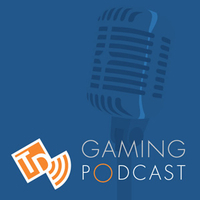The episode is a day late, sorry about that, folks. In this episode, we wish Paul was with us to discuss what he thought of the release of Jem and the Holograms in theaters. The banter is strong, but not overstuffed like last week.
Lots of news this week, however:
- Konami insists Hideo Kojima still works at company
- 343 Industries not ruling out PC port of Halo 5
- Rebellion rescues Kickstarter backers from GRIN’s bankruptcy
- Classic car combat RPG Autoduel may be making a comeback with inXile
- Pete Hines: Entire game not on Fallout 4 PC disc
- Vivendi seeking more shares of Ubisoft, board seats
The Question on the Week: Do you prefer first person or isometric RPGs?

 EA Leaves SecuRom out of
EA Leaves SecuRom out of